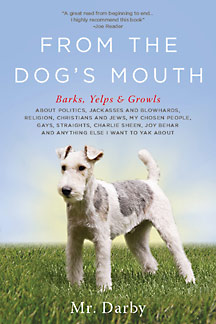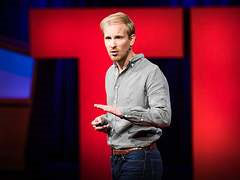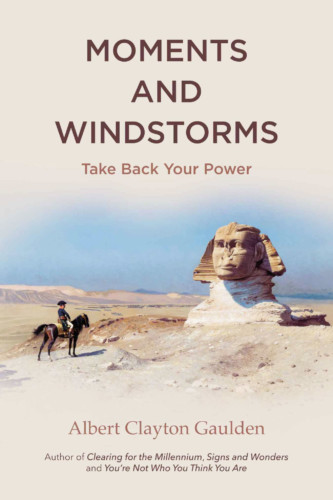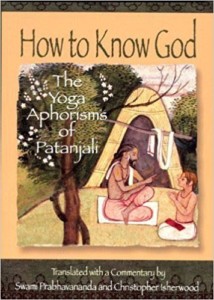
Enjoy the Gemini Newsletter for 2019!
The Signs of the Time–We get a lot of comments about the unrest that seems to have gripped the world in the last year or so. Saturn and Pluto in Capricorn have a lot to do with that especially here in the land of the red, white and blue as we are a Cancer nation and Capricorn opposes Cancer. An opposition challenges to see if that being put under the microscope can stand the close inspection. No matter how much any of us says that we learn far more through trial and error and times of difficulty, most of the country wants to eat large and drink itself into a stupor.
Jupiter in Sagittarius, Saturn and Pluto in Capricorn all continue to retrograde throughout this Solar Cycle. Retrograde diminishes somewhat the harshness of the planet in sign. For instance, Sagittarius will feel less of the bounty of Jupiter, and Capricorn will not feel the heaviness as much whilst Saturn and Pluto are retrograde.
There will be a New Moon in Gemini at 12 degrees of Gemini on June 3. With Mercury also in Gemini until June 5, the Twins are going to have a nice run of luck for two weeks.
There will be a Full Moon at 25 degrees of Sagittarius on June 17. With Jupiter in Sag retrograde and this Full Moon, those born between November 12 and December 20 will find this Solar Cycle to be trying at best. Your dark side teaches you more than the hot lights of heaven.
Monthly Insights for the Signs
Fire Signs
 ARIES (March 19 – April 18)–Click your heels, Rams, like Dorothy from Oz because most of these planetary movements benefit you this Solar Cycle. You and Gemini are buds in the Zodiac. Jupiter in Sagittarius also has some minor benefits since it is retrograde. You need to watch your back when Mars is in Cancer and Saturn and Pluto in Capricorn. The latter requires slow and deliberate planning and change when you are all about instant gratification. Take what works for you this month and keep your head down otherwise.
ARIES (March 19 – April 18)–Click your heels, Rams, like Dorothy from Oz because most of these planetary movements benefit you this Solar Cycle. You and Gemini are buds in the Zodiac. Jupiter in Sagittarius also has some minor benefits since it is retrograde. You need to watch your back when Mars is in Cancer and Saturn and Pluto in Capricorn. The latter requires slow and deliberate planning and change when you are all about instant gratification. Take what works for you this month and keep your head down otherwise.
LEO (July 22 – August 22)–Sometimes you must feel like the luckiest man or woman on earth with so many power points coming your way. Read Gemini for Mercury and Venus which also bless you Lions and Lionesses. Although Jupiter is retrograde, it is still in a compatible Fire Sign as are you. However Venus in Taurus until June 9 will do you no favors. A suggestion for you Leos is to continue to put a lot of attention on devolution of your Super Ego. There is nothing more unattractive than you strutting down Fifth Avenue when there is no parade in sight.
SAGITTARIUS (November 22 – December 20)–Don’t let your ruling planet Jupiter retrograde in Sagittarius stress you out. The opposition of the Sun in Gemini is more to be a bit worried about. And also Mercury and Venus in Gemini opposing you Archers makes it a time to step away from the spot light and do some private reconsideration of where you are and what you are doing to make the most of the hand life has dealt you.
Earth Signs
 TAURUS (April 19 – May 20)–Take what you can get this month; that would be Venus in Taurus until June 9. Rulership is everything when tracking the stars, so let your ruling planet, Venus in Taurus lift your boat and unfurl your sails. Mars in Cancer all month also abets your need to move in the right direction to accomplish what needs done. Taurus is known to be slow and deliberate but the Mars affect from Cancer can be the impetus you’ve been looking for to pick up pace.
TAURUS (April 19 – May 20)–Take what you can get this month; that would be Venus in Taurus until June 9. Rulership is everything when tracking the stars, so let your ruling planet, Venus in Taurus lift your boat and unfurl your sails. Mars in Cancer all month also abets your need to move in the right direction to accomplish what needs done. Taurus is known to be slow and deliberate but the Mars affect from Cancer can be the impetus you’ve been looking for to pick up pace.
VIRGO (August 23 – September 22)–If you track Mercury and Venus carefully you will see that they will bless you part of this Solar Cycle. Mercury is more in your corner when it moves into Cancer June 5. Venus is also aligned with you from May 21 until June 9 when it is in Taurus. Mars is in Cancer all Solar Cycle, but Mars abrades in how pushy it can be. For early degree Virgos born between August 23 and September 2 Uranus in Taurus will give you a bit of sudden momentum. Whatever stay the course.
CAPRICORN (December 21 – January 18)–Diligent and dutiful can be said of you Capricorns once again this month. It’s not as if you are trying to build the latest gadget to make the world a better place or that you are creating the next design to improve anyone else but yourself. Rather it is once again time for you Saturn-ruled Goats to stay where they are and do what they do without consulting another single soul. Some like to say that Capricorn is private and quieter and goes about his or her business connected to an internal inspiration. Better to follow a Voice of reason than to join the chatter of the maddening crowd.
Air Signs
 GEMINI (May 21 – June 20)–You Twins are so fortunate with the astrological aspects this month. The Sun will be in Gemini for 30 days. Your ruling planet, Mercury, will be in Gemini until June 5. Venus will be in Gemini from June 9 until the 4th of July. Don’t get too loopy but this is the time to buy a new car or a new pad. Only spend what you can afford and make sure what you buy will look as good in September as it does in June. This is the best time you have had in a months of Sundays. Be cautious but enjoy.
GEMINI (May 21 – June 20)–You Twins are so fortunate with the astrological aspects this month. The Sun will be in Gemini for 30 days. Your ruling planet, Mercury, will be in Gemini until June 5. Venus will be in Gemini from June 9 until the 4th of July. Don’t get too loopy but this is the time to buy a new car or a new pad. Only spend what you can afford and make sure what you buy will look as good in September as it does in June. This is the best time you have had in a months of Sundays. Be cautious but enjoy.
LIBRA (September 23 – October 22)–Read Gemini posting to see when Mercury and Venus are trining Libra–another Air Sign. Venus being your ruling planet has some good news whilst it is in Gemini beginning June 9. The Sun in Gemini for 30 days gives you legs up to get a lot done. Although Jupiter is retrograde in Sagittarius it still offers positive blow back to you as well. You also want to be aware that Mars in Cancer this Solar Cycle will be an irritant. But no Sign perseveres under trying times quite like you Libras.
AQUARIUS (January 19 – February 17)–A change of planets in Signs this month benefits you immensely. Read Gemini’s post and follow the dates of Mercury and Venus and the Sun in Gemini which benefits you, another Air Sign, more than you know. Your ruling planet, Uranus, in Taurus for a number of years is going to be the stopgap in more ways than a dozen. However, personal planets are always the more important and get to what you have been working for. Watch what you say and do and then move with confidence.
Water Signs
 CANCER (June 21 – July 21)–Mars is going to continue to give you fits throughout this Solar Cycle as Mars is the culprit. Mars is aggressive and warlike and Cancer is a peacemaker. Watch your mouth and the steps you take. Cancer has a tendency to be strong and doesn’t put up with any nonsense. With Saturn and Pluto opposing you for a lot longer your house may seem like it is sitting on the San Andreas Fault. Venus is in compatible Taurus until June 9. Ruled by the Moon, here are your positive lunations: May, 26, 27; May 31, June 1; June 4, 5; June 10, 11; June 13, 14.
CANCER (June 21 – July 21)–Mars is going to continue to give you fits throughout this Solar Cycle as Mars is the culprit. Mars is aggressive and warlike and Cancer is a peacemaker. Watch your mouth and the steps you take. Cancer has a tendency to be strong and doesn’t put up with any nonsense. With Saturn and Pluto opposing you for a lot longer your house may seem like it is sitting on the San Andreas Fault. Venus is in compatible Taurus until June 9. Ruled by the Moon, here are your positive lunations: May, 26, 27; May 31, June 1; June 4, 5; June 10, 11; June 13, 14.
SCORPIO (October 23 – November 21)–Although a long shot, Saturn and Pluto in Capricorn, work in your favor this Solar Cycle. Pluto is your ruling planet and Saturn rules Capricorn–another great connection. It’s all good for you this month as long as you check-in with the God within you and stay out of the nuttiness overlaying the world at this time in Mankind. Also, Mars in Cancer–a Water Sign–like Scorpio also can add spice to the stew this month. Not caring that we are repeating ourselves, Scorpio will always be considered the Wizards of the Zodiac because when clear and Conscious as you are, no one gets the tune the Celestial is playing quite like you do.
PISCES (February 18 – March 18)–There is a downside to having your ruling planet sitting on top of your head. Although Neptune can inspire you to write a song or a book, even design clothes–it can also dunk you into addictive behavior like drinking and drugging and lying to yourself from unhealed negative feelings. However there is a tad of hope when Mars is in Cancer, Cardinal Water Sign and Venus is in Taurus. Saturn and Pluto in Capricorn can also be pluses if one is up to change albeit tough sledding at times.
Featured Person of the Month
Rutger Bregman, author of Utopia for Realists
He is making a profound impact on the world of Economics
Meet the folk hero of Davos: the writer who told the rich to stop dodging taxes. “Taxes, taxes, taxes. All the rest is bullshit in my opinion.”
One of the biggest stars to come out of the World Economic Forum in Davos, Switzerland wasn’t a CEO or a head of state or a venture capitalist. It was Rutger Bregman, a Dutch journalist and historian, who used his speaking time at the conference to lambaste the rich attendees for failing to talk about the one thing we know could fight wealth inequality: raising taxes for the kind of people who go to Davos.
Rutger Bregman is one of Europe’s most prominent young thinkers. The 28-year-old historian and author has published four books on history, philosophy and economics. His book Utopia for Realists — on universal basic income and other radical ideas — has been translated in more than 20 languages. His work has been featured in The Washington Post and The Guardian and on the BBC.
The following is Bregman’s reason for being at Davos this year. I am posting here because he calls out the band-aids that purport to answer the issues of world poverty and he offers a totally honest effort to address the issue. We suggest you Google him and watch his Ted Talk and excerpt from Davos.
Rutger Bregman
My book was more or less the ticket to Davos. As you know, basic income is a hugely popular subject in Silicon Valley and I guess they wanted me to talk about that.
During the conference, I started getting this uncomfortable feeling, like no one’s talking about the elephant in the room, right? So it’s all about education, and climate change, and feminism, and inclusion and blah, blah, blah. The solutions are so pathetic, to be honest. It’s, “We’re going to organize another workshop on transparency,” or, “We have this great initiative with the Bill and Melinda Gates Foundation.”
And I mean, there’s some great philanthropy, right? But philanthropy is not a substitute for democracy or proper taxation or a good welfare state. So then I started to think, I can’t just go on promoting my book on Friday. I just can’t do that. I can’t live with myself. I’ve got to state the obvious.
So on Thursday, I basically went to my hotel room and prepared a speech, and I learned it by heart. I got a question the next day from Edward Felsenthal, the editor-in-chief of Time magazine. And he asked me a question about basic income and about poverty and blah, blah, blah. I more or less ignored it and just gave my speech.
The response in the room was quite mixed. Some of the younger participants really liked it, and some journalists really liked it, but as you can see in the video, the Yahoo CFO — and there were quite a few other people like him — really hated it.
And then on Monday and Tuesday, it completely exploded.
Dylan Matthews, an American journalist for Vox, an online media venture.
You did a very nice TED talk on the book. Was the attitude at the TED Conference similar or different to Davos?
Rutger Bregman
I thought that TED was a pretty bizarre experience as well. Don’t get me wrong, I love being able to do that. It’s a fantastic stage to stand on, it’s a really good team that you work with, and I thought that most of the Ted talks I saw at that conference in 2017 were incredible, given by people who really know their subject and did their very best to condense it all into one talk.
But then at the same time, you realize that it’s actually a networking event for the rich and powerful. So onstage you have this progressive leftist thing, but then in the halls, you hear some conversations and talk to some people and realize, “Whoa, you’re from another planet.” I remember a guy who was explaining to me that government always fails and that we should basically try to abolish it. It all sounded completely ridiculous to me.
Dylan Matthews
I’m curious how your thinking about philanthropy has evolved in recent years. Part of why your speech blew up is it captured this feeling expressed in recent books by folks like Anand Giridharadas or Rob Reich, is that philanthropy has gotten a pass and the ways in which it can undermine democracy or entrench inequalities have gone under-examined.
Rutger Bregman
Take someone like Bill Gates, or the Bill and Melinda Gates Foundation. I’ve got very mixed feelings about them. There’s extraordinary evidence that they are doing a lot of good. They’re basically saving millions of lives, and who could be against that?
But I don’t want to live in a society where we are dependent on the charity of one guy and his wife for something like that. That’s not what a just society looks like in my mind. In any just society, philanthropy should play a very small role, and you need to have a strong welfare state, strong governments, so that together, you can democratically decide on what you want to do.
That’s a point that Anand makes very well, that this philanthropy can be an excuse, a distraction from talking about the real issues. So at Davos you’ve got all these people who earned their money through exploitation, rent-seeking, you name it, and then they do a little bit of philanthropy to distract from all of that. And it can do real damage if you give that a lot of attention.
Dylan Matthews
I find myself split on this. I look at billionaire philanthropy, and a lot of it is just pure waste — see, for instance, the American hedge fund manager Steve Schwarzman, who gave $150 million for a new performing arts center at Yale.
But my conviction that this is wasteful, and an anti-democratic exercise of raw power, is challenged by the existence of people like Gates. My belief is that we ought to have a real democracy where billionaires don’t have that kind of influence through their gift-giving conflicts with my desire to not have lots of people die from malaria.
I’m curious if you reconcile those real benefits that a small number of philanthropists provide with your broader critique.
Rutger Bregman
It’s interesting to think about a hypothetical world where billionaires like Bill Gates don’t exist, where inequality is way lower in the US, and what that would look like. How much malaria would there be in the world?
I don’t think it will be a worse world. I think you could make a case that it would be a better world — you would be not giving your talks about effective altruism in front of philanthropists, but in front of government officials. I think that’s the world I would want to live in.
Now, I understand that obviously in the short term, we’ve got to work with what we have. So I’m not saying that the Bill and Melinda Gates Foundation should be abolished or anything. They’re doing great work. But I would want to live in a society where they’re not necessary, where they’re not the people who are doing the work.
And let’s also remember that Bill Gates is not in the majority. Most millionaires don’t have a foundation like that. And indeed, they fund a lot of stupid things. As Branko Milanovic put it, they will fund the Philharmonic Orchestra and then exploit their workers once again.
Dylan Matthews
A particularly persuasive part of your book is your critique of paternalistic government programs (giving food instead of cash, for instance) and your argument for the decentralizing power of basic income, its ability to give citizens more control over their benefits.
I think for a lot of people in Silicon Valley and the Davos ecosystem, that kind of reasoning can serve as a justification for their role: We can’t trust the government to micromanage, when it intervenes it should be in minimally regulated ways like universal basic income, and the rest of the world should be up to us, as independent capitalist actors, to sort out for ourselves without the government pushing us around.
Obviously, you think that’s the wrong conclusion to take.
Rutger Bregman
Often, we frame the debate as something between capitalism and communism, or market versus state, or whatever. And I think there’s actually a way around that. It’s what I call the anarchist state. I think the state should think like an anarchist. What you need is a big state in terms of redistribution. You need to have relatively high tax levels so that you can spread the wealth around, and give everyone a bit of venture capital in the form of basic income to make their own choices. But you don’t need a huge amount of bureaucrats in health care, for example, that decide how specifically that health care is being delivered.
A great example from Holland is an organization called Neighborhood Care, or Buurtzorg. They have 10,000 employees in all self-directed teams, obviously funded by the state with taxpayer money.
But then these professionals do everything themselves. They decide for themselves who they want to employ, what kind of education they need; they’re relatively cheaper than the competitors, they’re hugely popular with their clients, and they pay their employees higher wages as well. It’s almost like an anarchist organization, but then funded by the government.
That’s what I’m interested in, if we can scale up those kinds of models. But from a European perspective, for something like universal health care, it’s just not a discussion here. We know it works. It’s hugely popular. I really see a basic income as a supplement to those great achievements.
Dylan Matthews
One critique I’ve heard from the left of basic income is that it lacks a political economy. Traditionally, the base of left politics has been labor unions and mass worker organizing, who then agitate for what they want from the bottom up. By contrast, there’s a perception that basic income is an idea imposed from the top, that even if it benefits a lot of people, it’s coming from Silicon Valley, from figures like Mark Zuckerberg, as a top-down attempt to pay the proletariat not to eat them.
Has your experience as a visitor in Davos and TED changed how you think about how a basic income could be achieved?
Rutger Bregman
It’s not necessarily a bad thing if a good idea comes from the top. There are good examples throughout history of real leadership — in American history, presidents going forward even though public opinion is not behind them. Take the example of Porto Alegre, the Brazilian city that started with participatory democracy and participatory budgeting. That was really implemented from the top but then became hugely popular from the bottom up as well.
There’s a lot in basic income for labor unions as well. Obviously not the version where you abolish the whole welfare state and give people one small cash grant, as some libertarians and Silicon Valley want, but if it’s a substantial basic income, then it’s also a universal strike fund. You can always go on strike, stop working. Labor unions should like that.
It was a completely forgotten idea on the fringes of the political debate, and now is being invited to places like Davos. The first talks I gave about it were for small groups of anarchists, and now it is places like this. It’s another example of what I tried to show in my book: that new ideas start on the fringes and they move toward the center.
Dylan Matthews
Do elite crowds like that respond differently to you when you talk about 15-hour workweeks? That’s another idea in your book with less elite cachet.
Rutger Bregman
There’s a version of the idea of a shorter workweek that can be very comfortable to the CEOs. If you just say, “Why don’t we move from a five-day workweek to four days? We can be more productive and more creative.” They’re like, “Oh, that’s interesting.” But obviously, my point is a bit more fundamental. We should rethink what work is, and we’ve got a huge amount of bullshit jobs right now.
Did you see this recent paper? It’s by two Dutch economists on socially useless jobs and it’s the first proper poll that has been done on the phenomenon that David Graeber described. Thirty-seven countries, 27,000 employees, were asked the question: Does your job contribute anything to the common good? Eight percent said no and 17 percent were in doubt. So if you add that up, around a quarter of the workforce is not sure whether they contribute anything.
And the great thing about this paper is that they split it up by profession or by sector. You can see that finance ranks very high, and marketing ranks very high, and for police officers or firefighters or teachers, it’s literally zero, zero percent. So that’s the debate I wanted to have around work and about a shorter working week. But that’s obviously not what they were interested in at Davos.
Dylan Matthews
There’s another line of critique, very different from yours or Giridharadas’s, which is the Trump/Geert Wilders line: These are global elites plotting open borders and other schemes to destroy the honest, good (white) working people of America and the Netherlands. You’re a vocal advocate for open borders — do you see elites as a useful ally for open borders?
Rutger Bregman
Not really. What they have is open borders for the privileged few. I’m advocating open borders for everyone, which is obviously the most utopian idea of my book. People like Geert Wilders and Donald Trump are partly right when they say this. I was at a private panel where journalists were not allowed, under Chatham House rules, where one guy said, “Oh, you can increase taxes, but I’ll just move.” And I was like, this is exactly what got France the yellow vest movement, and this is exactly what makes people incredibly angry, because they’re like, “You’re not even loyal to your own country. So fuck off already.” So that critique is partly right.
But I just think we shouldn’t take that threat — “Oh, I’ll just move to another country” — too seriously. I think there are many cases where people won’t, because they like the country in which they live too much, and then if they do it anyway, then maybe we shouldn’t even want to have that money anyway, or we should cooperate on a global level.
Birmingham Holocaust Education Center Fund Raiser
 Although I am not officially Jewish I am a devotee of the Holocaust Center in Birmingham, Alabama. My dear friend Cathy Ovson Friedman made me aware of BHEC and I decided I wanted to make friends of the Sedona Intensive aware of their unbelievably deep and abiding work for the Center.
Although I am not officially Jewish I am a devotee of the Holocaust Center in Birmingham, Alabama. My dear friend Cathy Ovson Friedman made me aware of BHEC and I decided I wanted to make friends of the Sedona Intensive aware of their unbelievably deep and abiding work for the Center.
I encourage everyone to support this Center’s efforts to educate everyone about the work being done to make sure that through awareness of the horrors of the Holocaust the world will never have to survive such atrocities again.
The Sedona Intensive is making a donation to BHEC for $1,000.00. Please join us in making a contribution as well.
Love and Gratitude, Albert Gaulden
More from their website: The Birmingham Holocaust Education Center (BHEC) seeks to educate the people of Alabama about the history of the Holocaust so that new generations will apply the lessons of the Holocaust to the construction of a more just, humane, and tolerant future. By preserving and sharing the stories of local Holocaust survivors and commemorating the events of the Holocaust and the lives of those who perished, the BHEC seeks to promote a moral and ethical response to prejudice, hatred, and indifference for the benefit of all humanity.
More information and Donate: http://bhecinfo.org/
NEW! Stay-at-Home Sedona Intensive™
I now use SKYPE to be able to see and be seen by clients as I counsel them. This allows those who choose to stay at home and work through life issues to use a service we are now offering called Stay-at-Home Intensive™. Inquire now, 928-282-4723 or albert@sedonaintensive.com to find out more about this service. This Intensive is spread out over several weeks right from your home rather than the 5-days in Sedona.
NEW BOOK by Albert Clayton Gaulden
Moments and Windstorms: Take Back Your Power
This ground-breaking book offers an in-depth journey through the author’s eye-opening addiction to alcohol and how he eventually got sober. Gaulden has written a number of books as well as being Founding Director of the Sedona Intensive, one of the country’s most highly regarded alternative personal growth programs.
The author shares all the ways God was leading and guiding him even when he was still drinking. “Most of us look at false paradigms to measure success in our lives. So much of where I went and the jobs I took helped me remember what I was to do as my life’s work.”
Gaulden’s book is divided into five parts. Each section explores different parts of his journey, incorporating all the places he’s been, the studies he’s made and the people he’s met. His point of view is that each client who sought his help made him a better person. At the end of the book, he has some daunting but hopeful words about the conditions of the planet Earth and what we need to do to survive as a race.
Purchase Moments and Windstorms: Take Back Your Power here (Kindle and Print Editions)
MELT AWAY YOUR ACHES AND PAINS with GAIL BELL

The MELT Method is a breakthrough self-treatment technique that restores the fluid state and the supportiveness of the body’s connective tissue to combat chronic pain, improve performance and decrease the accumulated stress caused by everyday living. People find their sleep and digestion also improves. The method uses props…three small balls on your hands and feet and a soft roller for your body.
For more information contact Gail at gailgalvanibell@gmail.com.
“I have benefitted from Gail Bell’s M.E.L.T. expertise for several years. It is amazing what a few small balls and a roller can do to de-stress and rejuvenate the whole body. Gail is a practitioner for my Sedona Intensive clients. Her breath work is miraculous, especially for performance work and acting. If you’re in New York, call her and sign up for a class or private instruction. You will realize a significant change in your body from the first session.”
–Albert Clayton Gaulden, Founding Director, The Sedona Intensive™
Extended Sessions Get You Where You’re Trying to Go
Albert is offering weekly sessions via SKYPE or phone that can serve as a push in
the right direction with strategies to get you there.
How to Know God: The Yoga Aphorisms of Patanjali by Swami Prabhavananda, Christopher Isherwood
The Yoga Aphorisms of Patanjali is a major work on the practice of yoga and meditation. Learn through these aphorism how to control your mind and achieve inner peace and freedom. Although these methods were taught over 2000 years ago, they are as alive and effective today as they have ever been. This translation draws on the inspired commentary from both Swami Prabhavananda and Christopher Isherwood.Our flagship title has been completely reset in more readable type, with a new index.
The book is widely used in yoga classes as an important introduction to Raja Yoga. Promoted by George Harrison and featured in his last album.
Purchase How to Know God: The Yoga Aphorisms of Patanjali at Amazon
“No book ever straightened me out about the Divine and Creator like How to Know God. It is stylized much like a meditation text. You can read a page a day and the sensation of a connection with a Higher Power will grow exponentially. Om. Tat. Sat. Om.“
— Love and Gratitude, Albert

Couples Who Went to the Extreme to Save Their Marriage
An interview with Carl and Joyce Gioia in RedBook Magazine
When Joyce Gioia couldn’t think of anything else to save her marriage and solve the trust issues that were tearing her and her husband, Carl, apart, she decided to make an investment into what she hoped could be a life-long, loving marriage.They packed their bags and headed to the Sedona Intensive: A $16,000 week-long intensive therapy session that helps people release all self-destructive behaviors.
The purpose of this particular therapy was to help them become stronger individuals, and the counseling was never couple-based. In fact, they only saw each other once per morning at 7 a.m. when they attended a 12-step meeting. The meetings addressed addictions—but it had nothing to do with substance abuse—it was focused on things like work addictions and co-dependence issues.
Between the supervised journaling, visits with renowned mental health professionals, and their genuine will to make things work, Carl and Joyce were able to recover their relationship.
“I believed that the nature and the intensity of this self-learning experience would help us move beyond the impasse that was preventing a resolution in our marriage,” Joyce said. And she was right. By looking at each other as total individuals, they were able to discover what was most important to their spouse and cater to those specific needs. Two years have passed and they’re more in love than ever.
Q & A
RedBook – Explain what the Sedona intensive is.
The Sedona Intensive is a rigorous, weeklong self-exploration. During the week, through concentrated journaling and visits with mental and physical health professionals, we each invested a lot of effort and energy in self-discovery. This self-learning experience is designed and managed by well-respected psychologist Albert Gaulden and includes daily meeting with Albert to monitor progress and ensure results.
RedBook – How did you find out about it?
My brother, who is a nationally acclaimed Emergency Department physician, had gone through this experience with his wife Amber and highly recommended it to us.
RedBook – What did you do at the Sedona intensive?
Every day, we began by attending a 12-Step Meeting with AA. Then, we had a rotating schedule of appointments with a psychologist, a psychiatrist, a yoga instructor, and/or an energy-balancing professional, and of course, Albert. In our “spare” time, we took independent hikes, though the spectacular Sedona canyons.
RedBook – What made you decide to go to this?
We decided to do it, because nothing else seemed to be working to resolve our trust issues. I believed that the nature and intensity of this self-learning experience would help us move beyond the impasse that was preventing resolution of our marriage.
RedBook – How did it change your relationship?
We both worked very hard to discover why we engaged in self-destructive behaviors that stood in the way of our sharing the loving relationship we both thought possible. Two years later, we are more in love than ever before.
RedBook – Would you recommend it to others?
Yes, absolutely, if the two people are prepared to approach the experience with open hearts and minds and they are truly interested in doing the work to strengthen the relationship.
Lindsay, as I said before, “I honestly do not know what else we might have done that would have been so effective in turning the relationship around”.
Joyce Gioia
From the Blog
The Cave You Fear
The cave you fear to enter holds the treasure that you seek. This is a brilliant quote from a man many revere as the Father of Mythology, Joseph Campbell. When I read all his books and studied The Power of Myth...
Has the World Turned Up-Side-Down?
Sometimes I wake up and think the world turned upside down while I slept. But, no, it’s just negative, fearful, religious zealot loudmouthed naysayers trying to...
Mutual Reception
When two planets in one’s astrological chart are in the sign of the other, the two planets are said to be in mutual reception. For instance when Saturn, the ruler of Capricorn was in Scorpio...
When you are Down and Out
Compulsions and Addictions may be what are making you antsy, irritable and discontent. Now that we are in the dog days of summer perhaps you may be feeling like you are headed for the dog...
The Greatest Night of My Life
The Light Foundation Scholarship Fund threw a fancy dinner to celebrate my 35th AA Anniversary. 70 friends, family and clients gathered in the Monet Ballroom at L’Auberge...
What Our Clients Are Saying About The Sedona Intensive
“The Sedona Intensive was a life changing experience for me. I had been searching for happiness and serenity for over 20 years and as a result of the Intensive I found that I was looking in all the wrong places. I not only experienced what happiness and serenity truly are but now understand the process needed to maintain and enhance that state of being. It doesn’t mean that I don’t experience the ups and downs of life but what it does mean is that those downs do not even come close to impacting me the way they used to. There is now a presence of mind that provides clarity and purpose that did not exist for me prior to the Intensive.
It is impossible to put a value on such a quality of life enhancing experience that the Sedona Intensive provides the person willing to do the work.It is by far the most significant thing I have done in my 62 years.
I came across a quote last week that summed up what I experienced and learned while attending the Sedona Intensive – ‘Once you stop clinging and let things be, you’ll be free’ -Bodhidharma (440ce – 528 ce), the Zen Teaching of Bodhidharma: A Bilingual Edition.”
— Gary, Ontario
 Don’t forget to buy Mr. Darby’s book! Available from Amazon!
Don’t forget to buy Mr. Darby’s book! Available from Amazon!
by Mr. Darby
Learn More and Get the Book at Amazon!
ALBERT CLAYTON GAULDEN
 Transpersonal psychologist, astro-intuitive, author, lecturer, and founding director of the Sedona Intensive, Albert Clayton Gaulden has influenced countless individuals from all walks of life — actors, athletes, financial specialists, teachers, families, psychologists and psychiatrists — from all corners of the earth — helping them to retrieve their authentic selves and to tap into the inner core of their power. Discover Your Authentic Self with Albert Clayton Gaulden
Transpersonal psychologist, astro-intuitive, author, lecturer, and founding director of the Sedona Intensive, Albert Clayton Gaulden has influenced countless individuals from all walks of life — actors, athletes, financial specialists, teachers, families, psychologists and psychiatrists — from all corners of the earth — helping them to retrieve their authentic selves and to tap into the inner core of their power. Discover Your Authentic Self with Albert Clayton Gaulden
Explore Your Life With Astrology Chart Readings
Are you at a point in your life where you have more questions than answers?
Do you need direction or insight into your personal or professional life?
Why do other people seem to get all the breaks and you make all the mistakes?
Have you ever wondered why things seem to go awry or stay stuck during Mercury
retrograde?
Did you ever investigate why solar eclipses and lunar eclipses seem to
change your life forever?
These and many other areas are explored in astrology chart readings.








